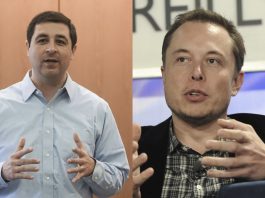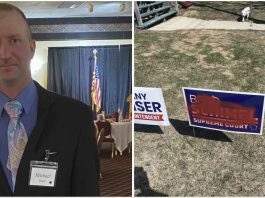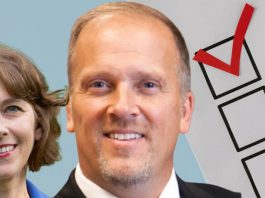Brian Boyd worked as an intelligence chief for Seal Team 6. They said who are you? He said, “I’m Mr. Boyd. I have your budget.”
In a crowded magic shop the size of a large closet in Naples, Florida, cluttered with everything from spy glasses to rabbits-in-a-hat, a 74-year-old man tries to get a grandmother to dig into her purse for the two kids who hang on his every word, enraptured by the gizmos he presents to them.
Wisconsin Right Now came upon Brian by chance, in a magic shop in Naples Florida. After a series of clever tricks and through the sheer force of personality, Brian Boyd makes his sale. You get the sense that this is second nature to him; sleight of hand served with a strong dose of charisma. When they leave, he continues his story, regaling two other strangers with extraordinary moments of political intrigue, and it’s quite a tale at that.
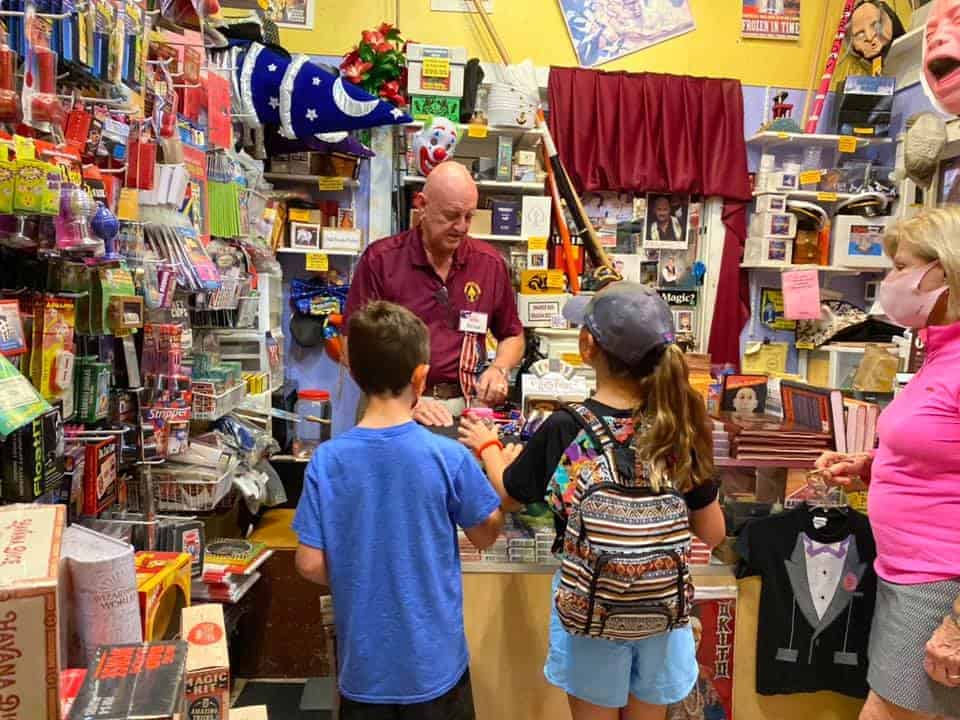
Another stranger and his kids had wandered into this magic store buried in a warren of little shops in a place called Tin City in one of the richest zip codes in the United States. They were curious and struck up a conversation. And here they found a man with a story to tell. Now he had set aside a couple hours and agreed to tell it to us, starting on the patio in sunny Naples and ending up behind the counter of the appropriately named, Tin City Magic.
Like a real-life Forrest Gump, Brian Boyd had a front-row seat to some of the biggest stories in political history, at least through about 2000. The Iran Contra affair. The Iranian hostage crisis. Watergate. Waco. The first Gulf War. The shooting of the Pope. He was there at the start of the DEA.
He describes performing a magic trick for George H.W. Bush and sitting next to G. Gordon Liddy. He didn’t like Oliver North, considering him a “hotdog.” He started his career in magic when he grew offended by the cigarette dangling from the mouth of a Venezuelan police official he was trying to train and made it disappear. Now he’s retired and magic is his career. It’s a lot less stressful, he says. Even today, he runs across the famous. He used a fart button on former Florida Gov. Rick Scott.
We told you he has quite a story to tell.
Who is Brian Boyd?
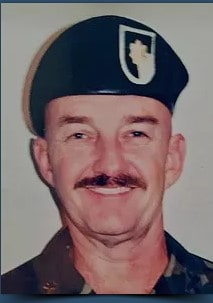
He has a website called Boyd Intelligence, where no other than Major General James Dozier vouches for him, saying, “I have known Brian Boyd for a number of years. For most of his military career, he has been a member of the Special Operations community for both the Army and Joint organizations. In the latter role, he was part of the JSOC team that assisted in my rescue after I was kidnapped by the Italian Red Brigades. He is a walking library of knowledge regarding Special Operations and other military matters.”
He’s also a former Green Beret. Boyd, his website says, “was part of the leadership of the Joint Special Operations Command which oversees the Special Forces, Seal Team 6 and the Delta Force. He is also the founder of the International Association of Law Enforcement Intelligence Analysts, former Senior Analyst at the DEA, founder of the Intelligence Analysis Division of the Joint Special Operations Command, and served in the Departments of Defense, Justice & Treasury.”
It all started with a James Bond book.
Raised in a Government Town, Brian Boyd Was Influenced by a James Bond Book
Brian Boyd’s father served in World War 2 as an infantry officer and his mother was a professional artist. Boyd’s father had also gone over to Vietnam in the early 1960s.
“I’m a third-generation Washingtonian,” he said, growing up nearby in Maryland. “It’s a city filled with government people.”
Boyd’s mother changed his life by giving him the book, Dr. No, the first James Bond novel. “I think that’s where my journey began,” he said.
“My mother gave me the book, and I’m in physics classes… I’m always thinking of multiple things at once… I was learning languages. My father said you’ve got to be a scientist.” He wanted to be a detective, but his Physics professor said, “Find something you can get excited about,” saying that he was “too gregarious” to make a “lab rat.”
He started studying in class how Napoleon died. He was a Boy Scout and a lifeguard and was active in the church.
Brian Boyd attended a community college and then the University of Maryland, running cross country. He was influenced by a criminology class. The professor was friends with J. Edgar Hoover. Originally, he wanted to be a homicide detective. “I thought science doesn’t lie, people do,” he said. But the college didn’t offer more than one criminology course. He eventually obtained a master’s degree.
He was then recruited to be in the special forces. He said he was 26th in his graduating class a year later. “Special forces is very tough; a very strict school to get through. They do everything in their power to get you to quit.” His role model in special forces would outrun them running “on his ankle stubs,” which they didn’t realize until he took his boots off. “All of my instructors in special forces school were missing body parts,” he said.
A general who worked in the French underground was wearing a beret, and when John F. Kennedy saw this, he said, “I like those special soldiers. Those special forces. Those green berets. He gave us the nickname.”
The Vietnam War was wounding down, though. He was then offered a career in intelligence services.
Sitting Next to G. Gordon Liddy

He was offered career opportunities with the Nixon administration; they were creating the Drug Enforcement Administration. Boyd saw the war in drugs as it was constructed from the ground up. He remembers sitting in a room with other recruits, and they were given two choices. Some were going to “plug leaks. Gordon Liddy was sitting to my left. He chose politics,” he says. The others were going to go work with Rudy Giuliani in the DEA. That’s what Boyd picked.
He was interested in studying the “worldwide narcotics” trade.
As for the Kennedy assassination, he believes the single gunman theory. “There’s not enough evidence to prove a conspiracy theory. There’s a lot of incompetence. When it comes to assassinations, it’s almost always a single person.”
As for Watergate, “they were trying to get into the DNC headquarters in the Watergate building. A security guard goes by and sees tape on the door.” He said it’s no different than “Hillary Clinton and the dossier.”
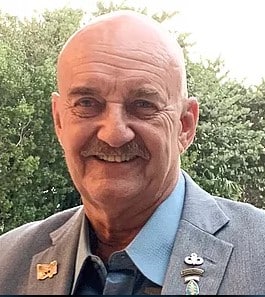
Brian Boyd went over to the new DEA. His boss became a police chief who gave Elvis Presley a badge. Everyone came from different backgrounds. His first assignment was in internal affairs. He wrote a report showing more people were dying of methamphetamine than other drugs and helped get those laws changed.
He went around the country with Giuliani, who was helping come up with RICO statutes. He felt a lot of the state and local laws on drugs were “totally crazy” and different from state-to-state. Ask what he thinks about the war on drugs, and he gives you an encyclopedic dissertation on everything from the British and opium to the creation of heroin. He said cocaine laws were introduced because of “prejudice against black musicians.”
Giuliani “has brass balls,” he said, calling him a “helluva prosecutor” in that era. He saw the growth of the South American and Mexican cartels.
Part of his career involved training police and military officials in other Middle Eastern countries. “For the first time, we were teaching foreign police officers to work with the American government,” through the DEA. He recalled how he bought a $5 magic trick on making a cigarette disappear, and he made an arrogant Arabic colonel’s cigarette disappear as a disarming effect. The man had been smoking in his face. It worked. “That’s literally how I got into magic.”
Brian Boyd was sent to Bogota and was warned about the corruption of the Colombian police. He got through customs by pretending to be a magician. He was trying to figure out the real network of how they really operated. “I pointed to them, ‘I know you do this; I know you do this. They were smoking in my face too.” The era was from 1972-80. It sounds like a scene from the Netflix series, Narcos.
Sure enough, his work soon shifted from South America to Mexico.
In fact, he helped solve the murder of DEA agent Enrique Camarena, who was murdered by the cartels in Mexico. He was promoted to San Diego, to set up a new intelligence unit.
He was offered a job with the ATF in Washington D.C. as their first chief of intelligence in the late 1970s. At that time, he said, it was a “backwards agency” of guys used to chasing moonshine. He worked with Steve Higgins, who later got in trouble over Waco.
The director came in and asked if he wanted to work a case involving the President of the United States being involved with Gaddafi and Papa Doc from Haiti. “They were accused of doing all kinds of stuff,” he said. “They said the Green Berets were involved and there was an illegal operation. They were going to arrest them.. because the CIA said they were wrong.” He said the CIA agents were the rogue agents, and he believed that the Green Berets weren’t the wrongdoers.
When the Pope got shot, he was involved in helping trace the gun to the Bulgarian secret police. “That made it state-sponsored terrorism. I published that report at ATF.”
Next, Boyd was assigned to create a new unit to help track terrorists. It was 1980. “No one was doing it,” he said. The American hostages were being held in Tehran, and Ronald Reagan was a new president “waiting to make things happen.” He was asked to put together a new unit by an Army general working for the then Vice President George H.W. Bush, who had been the CIA director and ambassador to Iran. He was also involved in the operation to rescue the medical students in Grenada.
He remembers the formation of Seal Team 6, which was a very small unit. The nation’s counterintelligence efforts were in their infancy. This is how he met Oliver North.
Oliver North was “nothing but a troublemaker. He was a hotdog.” Boyd told North “you can’t be read into what we’re doing. He was a glory hound. What he’s proposing will get us in jail.” He said he “threw him out. Ollie North caused us major problems.” He said that Iran-Contra was “stupid.”
He called North “a liar…He took credit” for what others were doing. He said that “we couldn’t come out of the black ops business” to counter his comments.
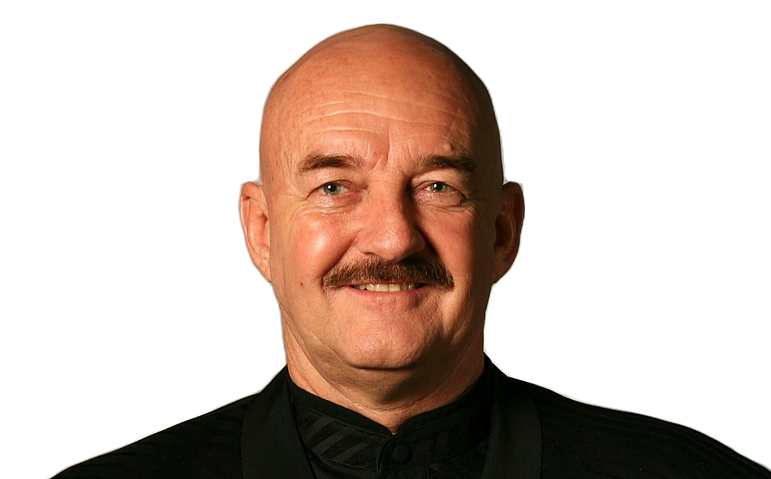 Boyd’s harshly critical of Waco and the raid on the Branch Davidian compound. “I went, what idiot would even plan that,” he said. Higgins was his boss. “ATF had no business doing it. They had no experience doing it. They planned it because they were looking for a way to get visualization. They wanted to get more publicity on a raid so they could get a bigger budget. That’s why the media were there. It had nothing to do with smartness or logic.”
Boyd’s harshly critical of Waco and the raid on the Branch Davidian compound. “I went, what idiot would even plan that,” he said. Higgins was his boss. “ATF had no business doing it. They had no experience doing it. They planned it because they were looking for a way to get visualization. They wanted to get more publicity on a raid so they could get a bigger budget. That’s why the media were there. It had nothing to do with smartness or logic.”
He worked as an intelligence chief for Seal Team 6. They said who are you? He said, “I’m Mr. Boyd. I have your budget.”
Boyd met Reagan once. “He was a good guy. He did a lot of good things for the country. George Bush (Sr.) I knew better. He had a sense of humor.”
He eventually worked on the planning of the First Gulf War as a defense contractor training special forces on ground operations, coming out of retirement in 1990. “We set up a clandestine site in Arkansas.”
And now? “Iran is the greatest threat along with China.” He said Russia’s Putin is “just trying to survive.” On the second Iraq War, he said, “they went back in to finish the job, but there was no exit strategy. When you go in and upset the tea kettle and there’s no plan. The wars in the Middle East are basically religious wars, Muslim against Muslim, Sunni vs. Shia.”
As for current politics, Brian Boyd said the Christopher Steele report is “Russian misinformation,” paid for by Hillary Clinton. He believes some of the FBI officials who investigated Donald Trump for Russian collusion that didn’t materialize belong in jail.
And so he’s ended up here, in this little magic shop, discussing a life that was anything but ordinary.
He advises people to have a “positive attitude. You’ll live longer.”
Table of Contents
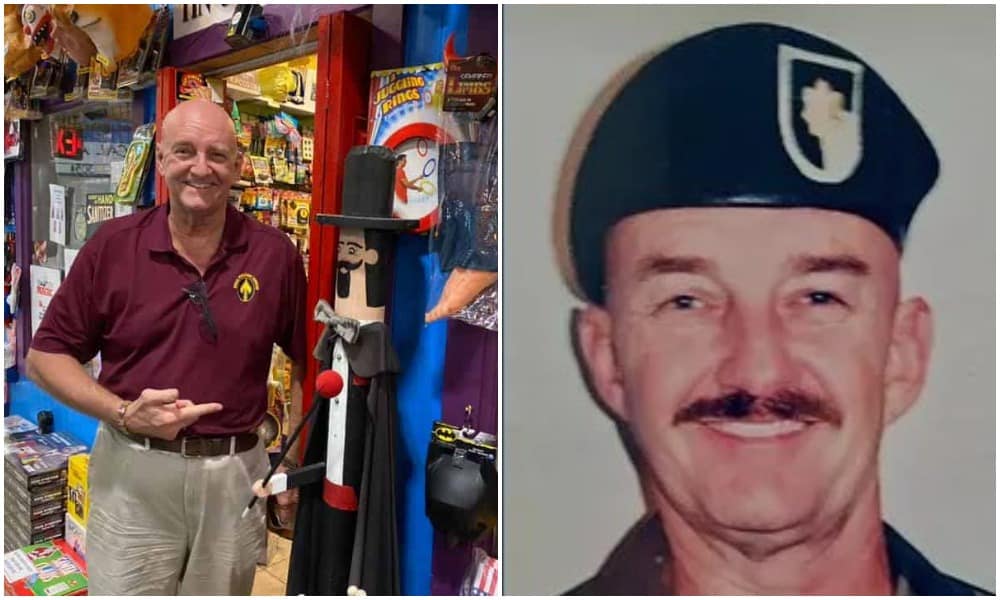
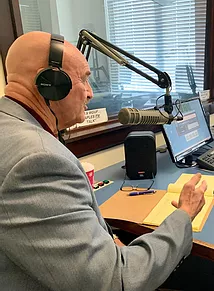

![WATCH: Elon Musk Town Hall Rally in Green Bay [FULL Video]](https://www.wisconsinrightnow.com/wp-content/uploads/2022/04/Elon_Musk_3018710552-265x198.jpg)
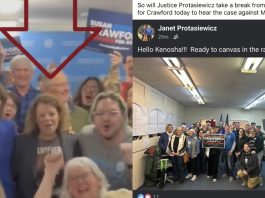
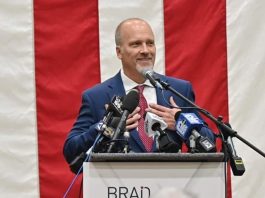
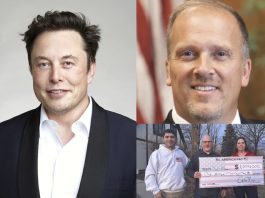
![The Wisconsin DOJ’s ‘Unlawful’ Lawman [WRN Voices] josh kaul](https://www.wisconsinrightnow.com/wp-content/uploads/2025/03/MixCollage-29-Mar-2025-08-48-PM-2468-265x198.jpg)

